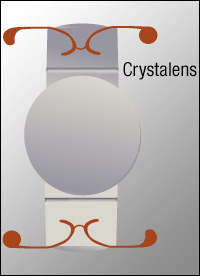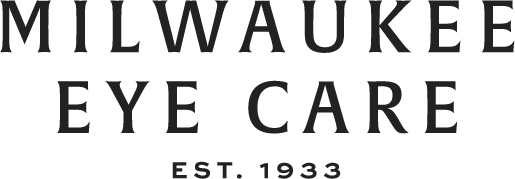Are you considering cataract surgery? Would you like to reduce your dependence on eyeglasses? At Milwaukee Eye Care, our cataract surgeons can explain the many advantages of utilizing Lifestyle Intraocular Lenses (IOLs). These lenses can provide you with a range of vision from distance to close up, and can even correct your astigmatism.
Presbyopia
This condition usually becomes noticeable around age 40. If you have presbyopia, you might currently use reading glasses to better focus on things up close. If you have presbyopia as well as cataracts, there are IOLs designed to help address both conditions at the same time.
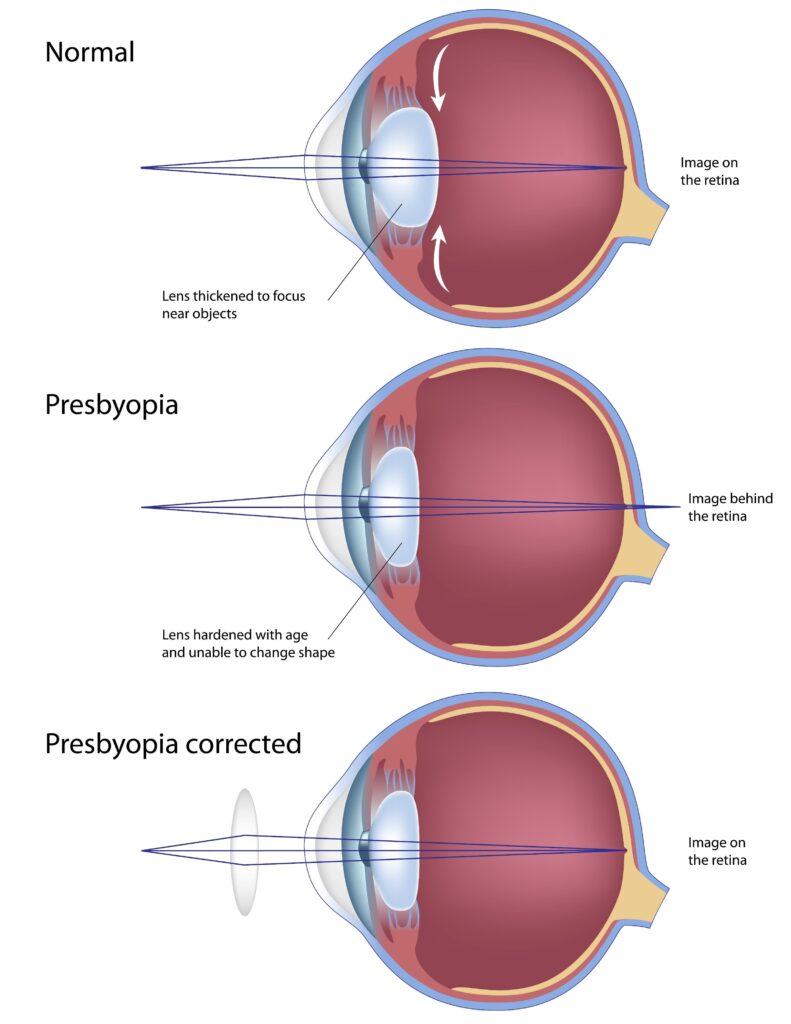
Presbyopia Correcting Lifestyle IOLS
- Multifocal IOLs provide excellent distance vision, just like monofocal IOLs. They also provide personalized near vision so you can focus where you use your vision most while relying on glasses less often for daily tasks.
- Extended Depth of Focus (EDOF) IOLs give you a continuous range of high-quality vision: excellent distance and intermediate vision with improved near vision.
- Trifocal IOLs Milwaukee Eye Care offers the TECNIS Odyssey™ IOL and PanOptix® Trifocal IOL . Trifocal IOLS are clinically shown to deliver an exceptional combination of near, intermediate and distance vision while significantly reducing the need for glasses after surgery.
Astigmatism Correcting Lifestyle IOLS
Most people are born with some degree of astigmatism — and nearly 40% of people with cataracts would also benefit from astigmatism correction. If you’re one of them, we can address both your astigmatism and cataracts without additional surgery using a specially designed toric IOL. We offer several astigmatism correcting lens options. These lenses are available in monofocal for clear distance vision, and extended depth of focus for continuous vision.
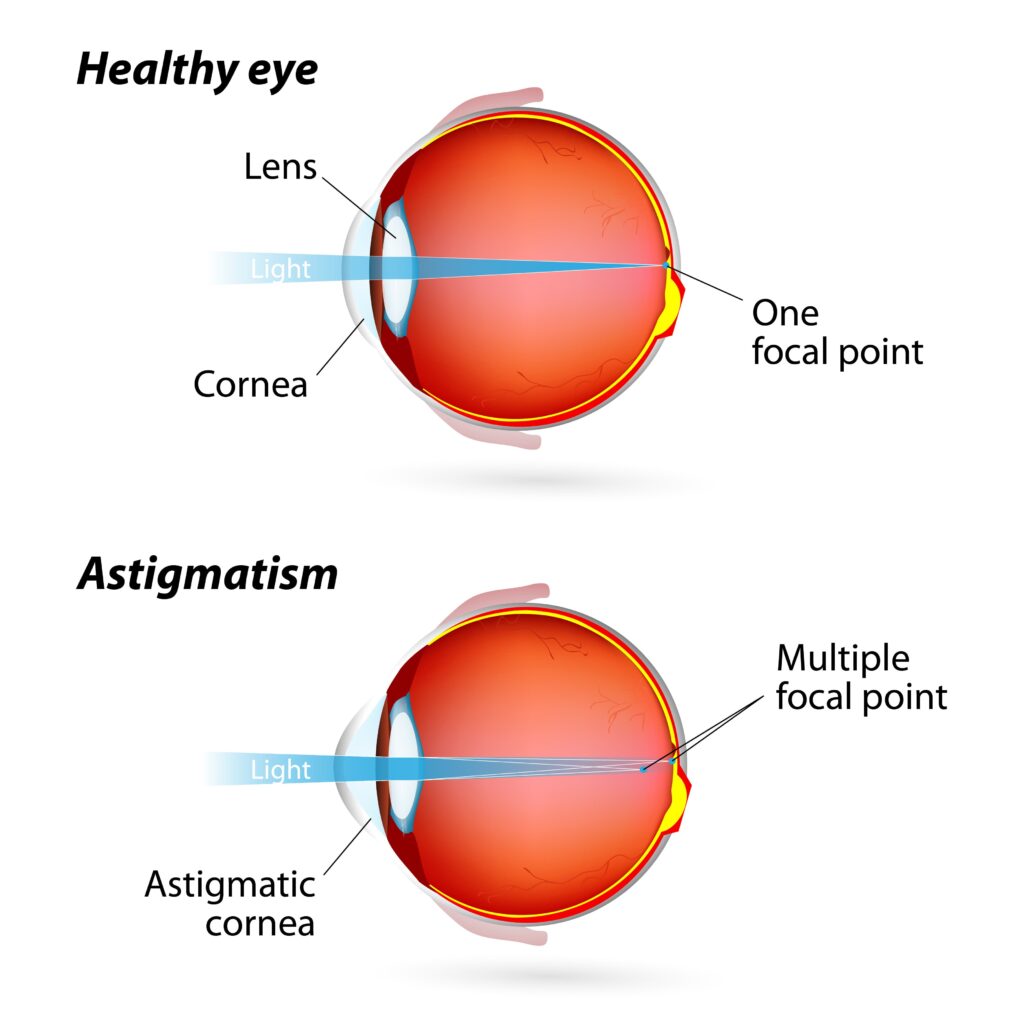
Light Adjustable Lenses
At Milwaukee Eye Care, our eye surgeons can provide you with the unparalleled vision solution of the RxSight™ Light Adjustable Lens — which is the first and only lens that can be customized after cataract surgery. This lens is made with a unique photosensitive material that changes the shape and power of your implanted lens in response to UV light, allowing you and your eye surgeon to customize your vision until it meets your personal desires and lifestyle requirements.
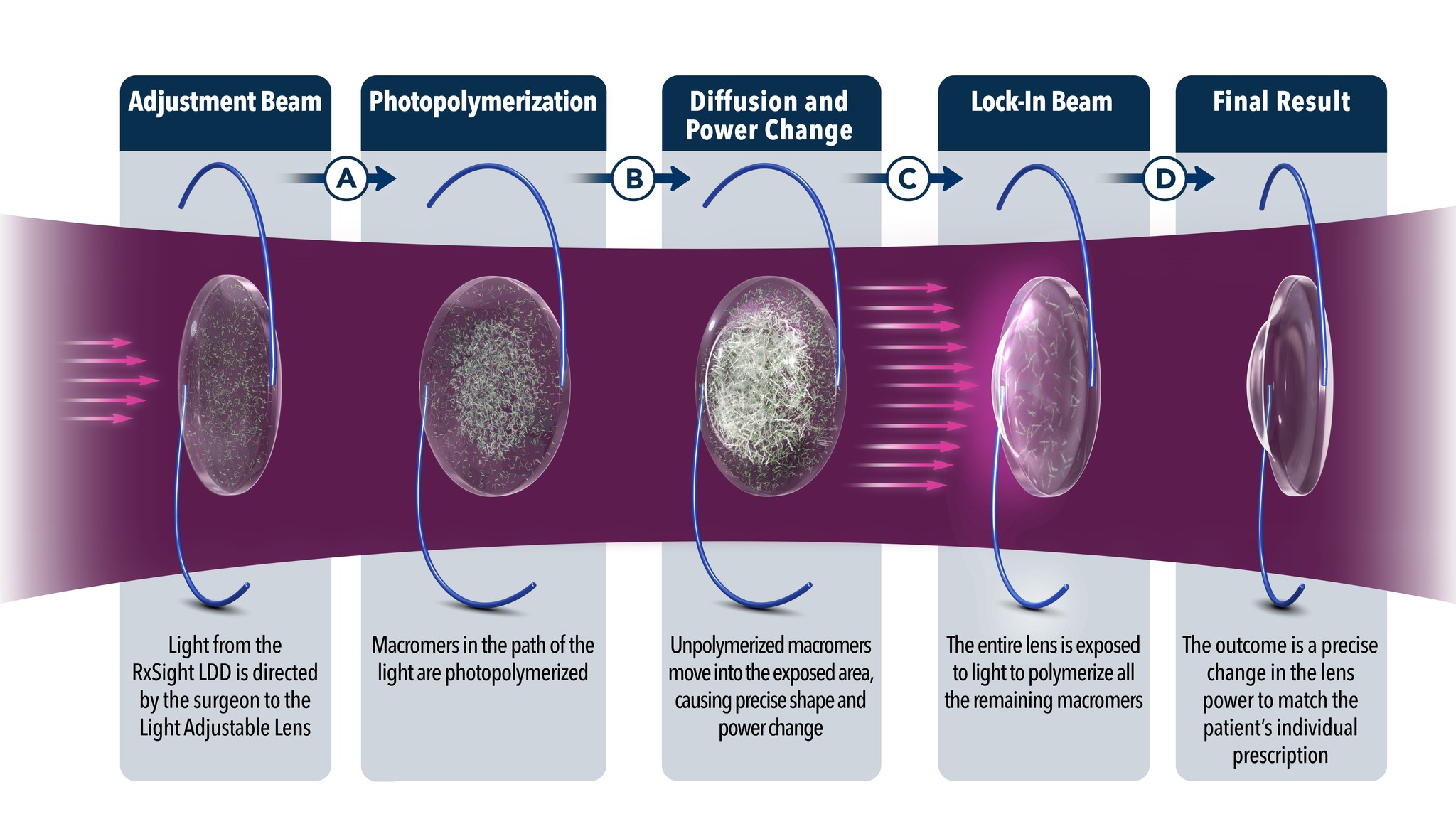
The cataract removal and IOL implantation process with the Light Adjustable Lens is the same as with other non-adjustable IOLs. Following your surgery, a series of non-invasive light treatments applied in the weeks that follow. These light treatments are done in the office and are painless, non-invasive, and last approximately 90 seconds. This process gives you the unique ability to preview and compare possible vision outcomes based on your preferences and lifestyle requirements like never before.
The Light Adjustable Lens has been proven to deliver superior vision outcomes compared to non-adjustable IOLs, with the majority of patients reaching 20/20 or better vision at 6 months without glasses.
- US Food and Drug Administration. Summary of Safety and Effectiveness (SSED) of Light Adjustable Lens and Light Delivery Device system.
Are Light Adjustable Lenses Right for Me?
Your Milwaukee Eye Care cataract surgeon will work with you to determine if you are a good candidate for the Light Adjustable Lens. This advanced technology requires an extensive evaluation prior to a cataract surgery to determine if you are the right fit for the lens. Your surgeon will explain the process and discuss any potential risks and potential benefits. Because of the unique post-operative light adjusting treatments, you will need to protect your eyes from UV light following your cataract surgery.
- You may need 2 to 4 total light treatments over a period of 1 to 2 weeks to reach your vision goals. These adjustments are made beginning 3 to 4 weeks after cataract surgery.
- You will need to wear special UV protective glasses during all waking hours (from time of lens implantation until after the last light treatment is completed) to prevent exposure to indoor and outdoor sources of UV light that can cause uncontrolled changes to the Light Adjustable Lens.
Cataract Surgeons
Jason N. Edmonds, M.D.
Nicholas J. Frame, M.D.
Mackenzie M. Sward, M.D.
Your cataract surgery is a great opportunity to get the vision that’s right for you. Below are links to the lenses our surgeons use and trust to provide clear vision. Each lens is different, just as every eye is different. Your surgeon will recommend the best lens for your individual needs.

The RxSight™ Light Adjustable Lens is the first and only intraocular lens that can be customized 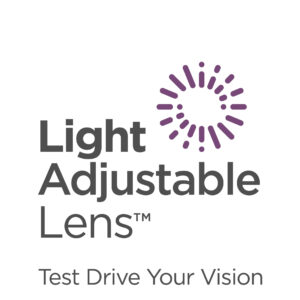 after cataract surgery. The Light Adjustable Lens is made of a special photosensitive material that can be adjusted in response to ultraviolet (UV) light. This optimization is done by your eye doctor in the weeks following lens implantation through a series of non-invasive light treatments that take only a few minutes each. You will have the unique ability to adjust and preview your vision until it meets your personal desires and lifestyle requirements. The Light Adjustable Lens delivers superior vision outcomes that non-adjustable IOLs cannot match.
after cataract surgery. The Light Adjustable Lens is made of a special photosensitive material that can be adjusted in response to ultraviolet (UV) light. This optimization is done by your eye doctor in the weeks following lens implantation through a series of non-invasive light treatments that take only a few minutes each. You will have the unique ability to adjust and preview your vision until it meets your personal desires and lifestyle requirements. The Light Adjustable Lens delivers superior vision outcomes that non-adjustable IOLs cannot match.

The rapidly expanding landscape of multifocal and extended depth of focus IOLs makes this an exciting time to be a cataract surgeon or a patient undergoing cataract surgery. Typical Lifestyle IOLs (such as ReStor, Symfony, PanOptix, etc) offer an excellent range of vision but have 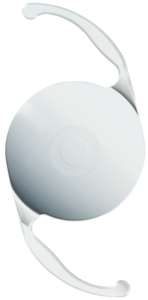 limitations. For example, technology compromises some vision quality that is not favorable for patients with maculopathy or optic nerve disease. For this reason, we very excited about Alcon’s new Vivity IOL.
limitations. For example, technology compromises some vision quality that is not favorable for patients with maculopathy or optic nerve disease. For this reason, we very excited about Alcon’s new Vivity IOL.
The Vivity IOL technology stretches the focal point without splitting light, which means your vision quality is like that of a single focus IOL and there are no halos. It boasts clear distance and intermediate vision, with functional near vision. Near vision, particularly small print, will still require the use of reading glasses. If you desire unaided reading vision, you may be better suited to another IOL. The Vivity IOL allows you to achieve quality distance vision and reduced spectacle dependence for more than ever before. We are very excited to offer the Vivity and Vivity toric IOL at Milwaukee Eye Care!

The PanOptix trifocal IOL was the first trifocal lens available in the United States. If the AcrySof name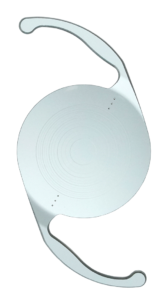 sounds familiar, that’s because over 100 million AcrySof lenses have been implanted around the world and counting.
sounds familiar, that’s because over 100 million AcrySof lenses have been implanted around the world and counting.
What Makes The PanOptix Trifocal IOL Different From Other IOLs?
With the PanOptix trifocal IOL, you’ll experience vision as it’s meant to be.
- No blurry zones which mean you’ll never need to strain to focus, no matter what distance you’re looking at
- You’ll see the world with brighter and more vivid colors
- Your vision will be sharper since the PanOptix trifocal IOL enhances your vision quality and range
- Sharper vision thanks to the PanOptix trifocal IOL means that you’ll be less likely to need glasses
- The PanOptix trifocal IOL provides excellent vision in all lighting, including bright lights, dim lighting, low light, and daylight

Have you been told that you are developing cataracts? Do you also have an astigmatism? You now have an important decision to make prior to cataract surgery. You have the opportunity to enhance your vision with the Toric IOL (Intraocular lens). Reduce or even eliminate your dependency on glasses after cataract surgery.
At Milwaukee Eye Care, we offer astigmatism correcting intraocular lenses (IOLs), which are specially designed to correct any astigmatism present. With the latest advancements in IOL technology, we are able to offer a single lens that can correct both cataracts and astigmatism. This means that you can have improved vision without the need for additional surgery or refractive procedures.
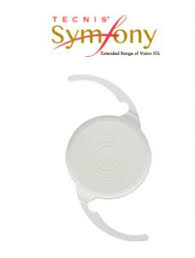
The Symfony IOL is an implant which can be used for patients with cataracts and presbyopia – allowing you to see distance and near vision without glasses.
Advantages of Symfony IOL
The Symfony IOL offers a significant improvement in what we can offer our patients with cataracts and near vision loss due to presbyopia: This intraocular lens is unique in the following ways:
- Symfony was the the first “presbyopia correcting” IOL that provides extended depth of focus
- Provides extended range of continuous vision
- Provides better image contrast
- Lower levels of visual disturbances

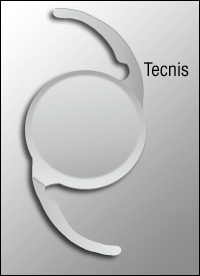
The Tecnis® Multi-Focal IOL is a Lifestyle Intraocular Lens that is specifically designed to offer both distance and near vision. This lens is typically implanted at the time of cataract removal and is a good option for patients want to reduce the likelihood of needing distance, reading or computer glasses after surgery.

The ReSTOR IOL is an excellent choice for patients who plan to lead an active lifestyle after cataract surgery, as the IOL helps you see clearly in a variety of lighting conditions and distances. In addition, the IOL is designed to provide you with a full range of vision without the need for corrective eyeglasses or contact lenses.

